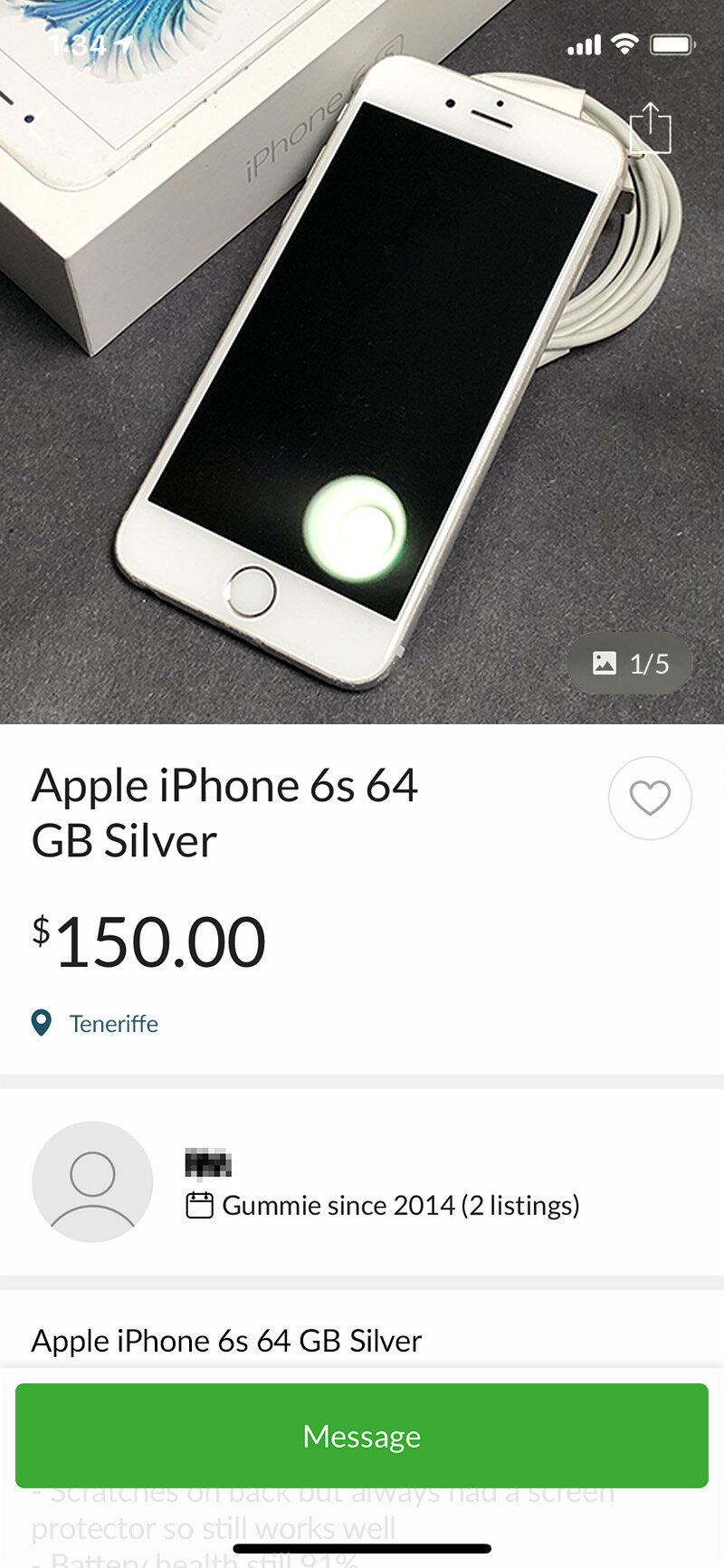
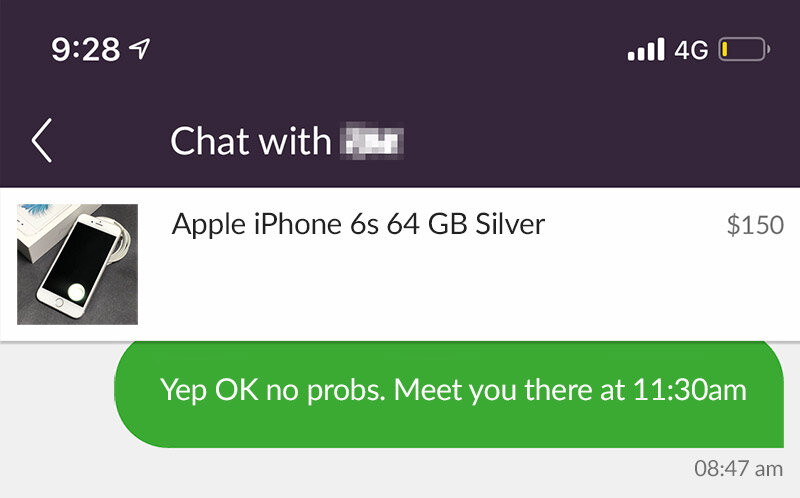
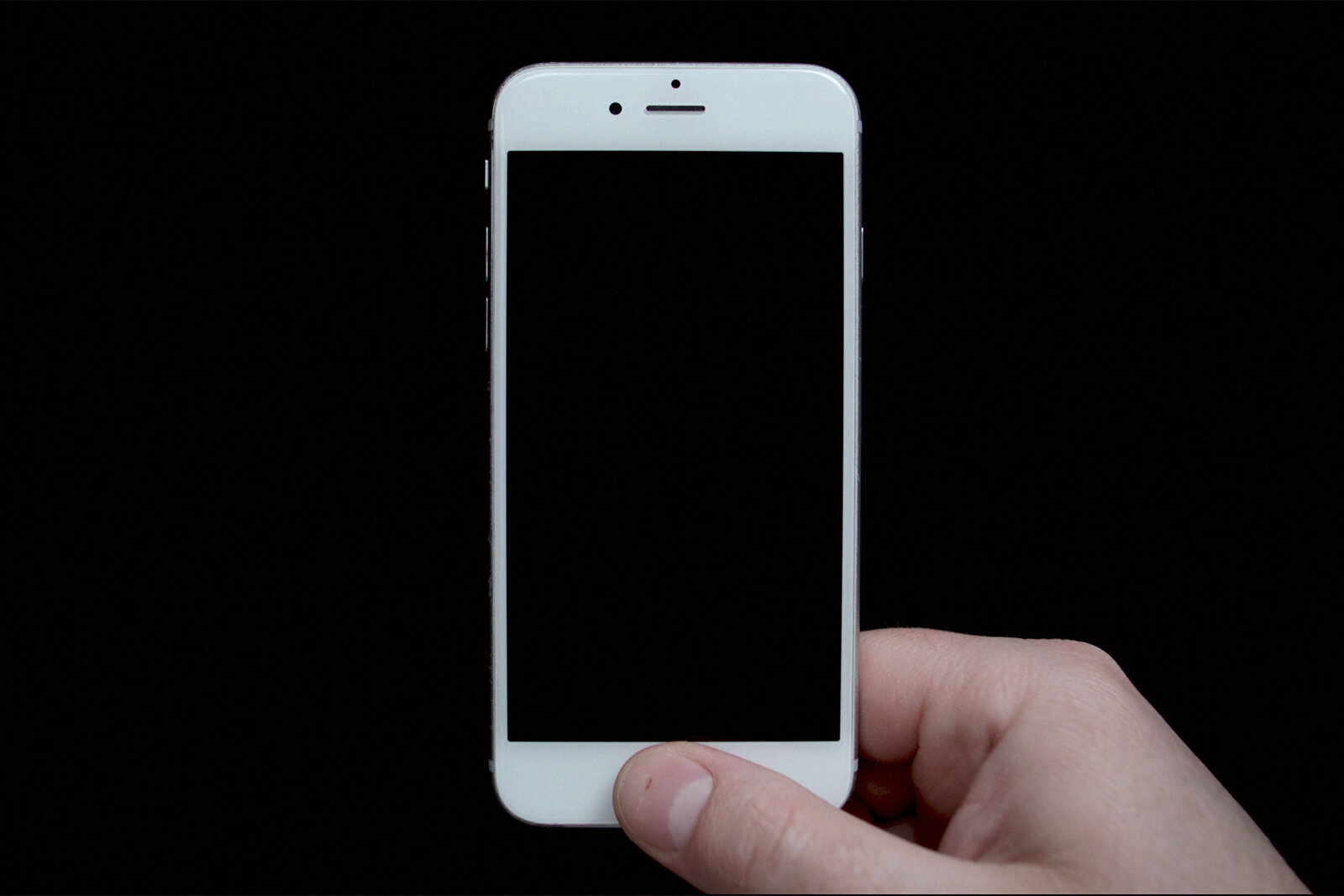

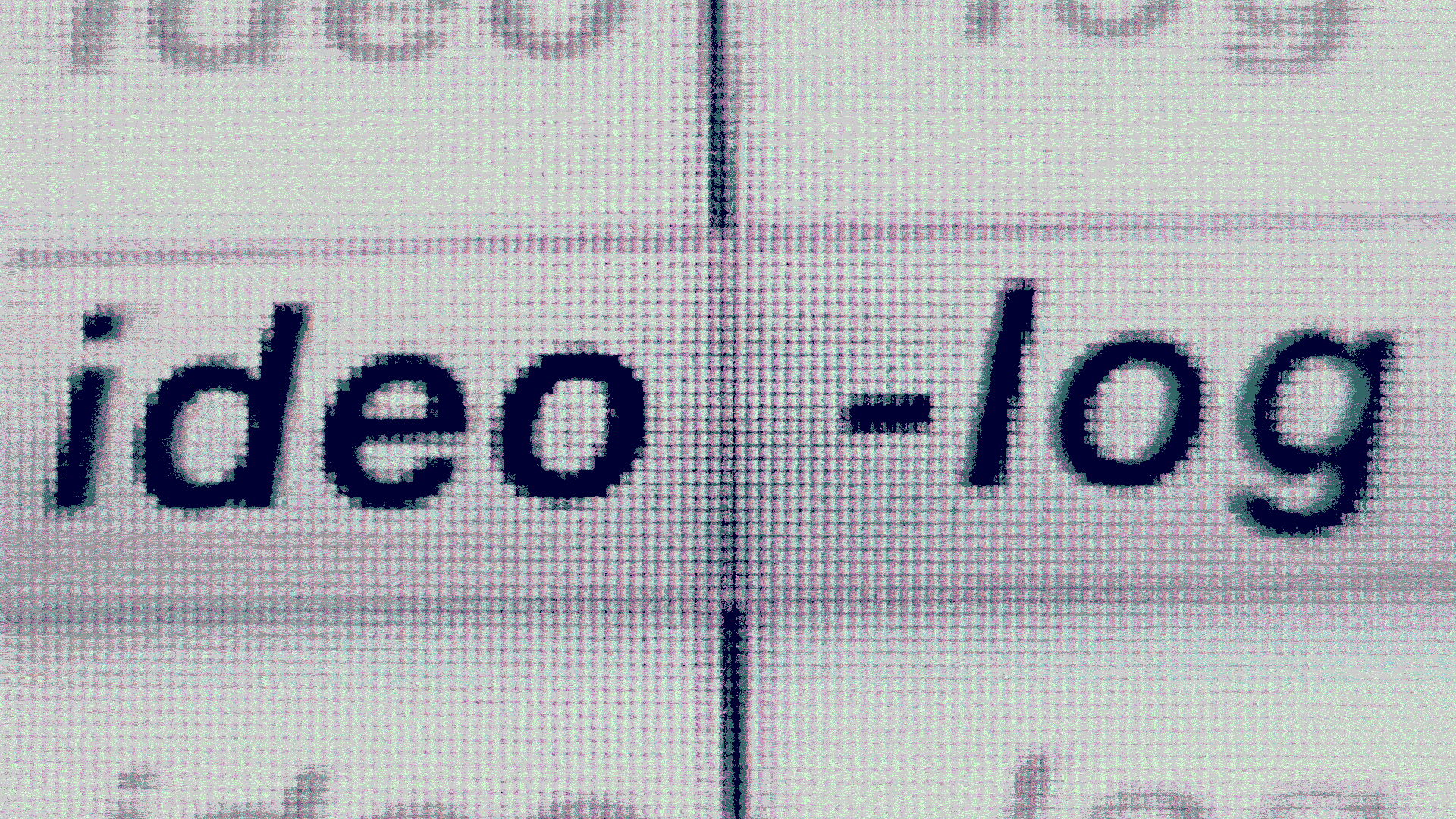


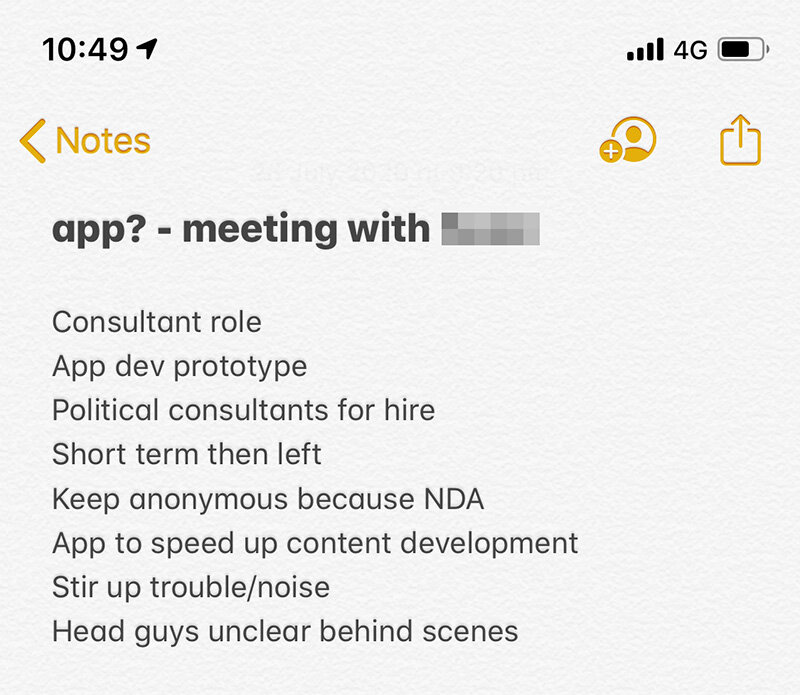
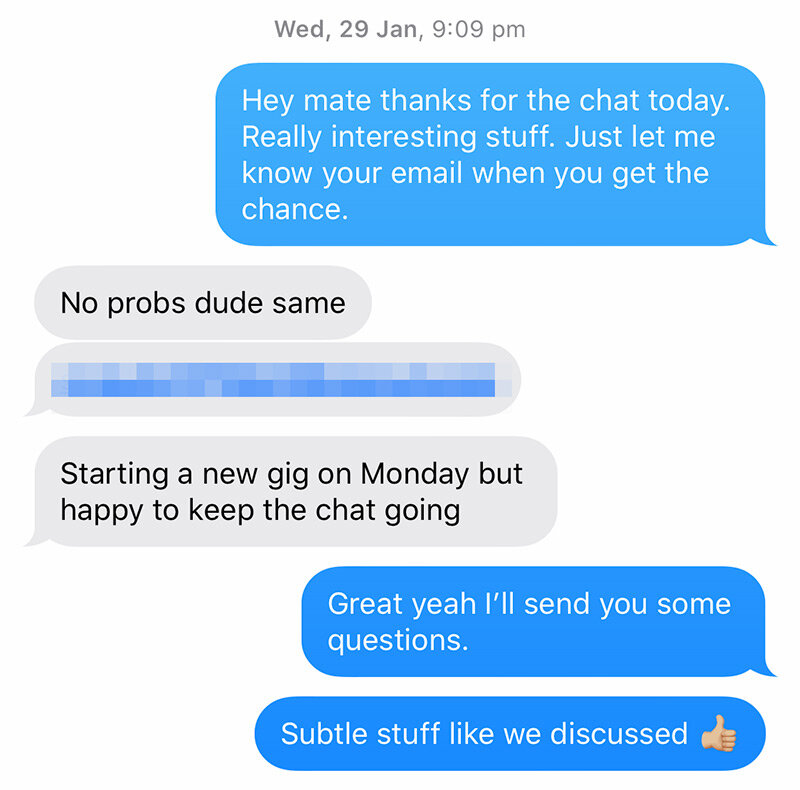
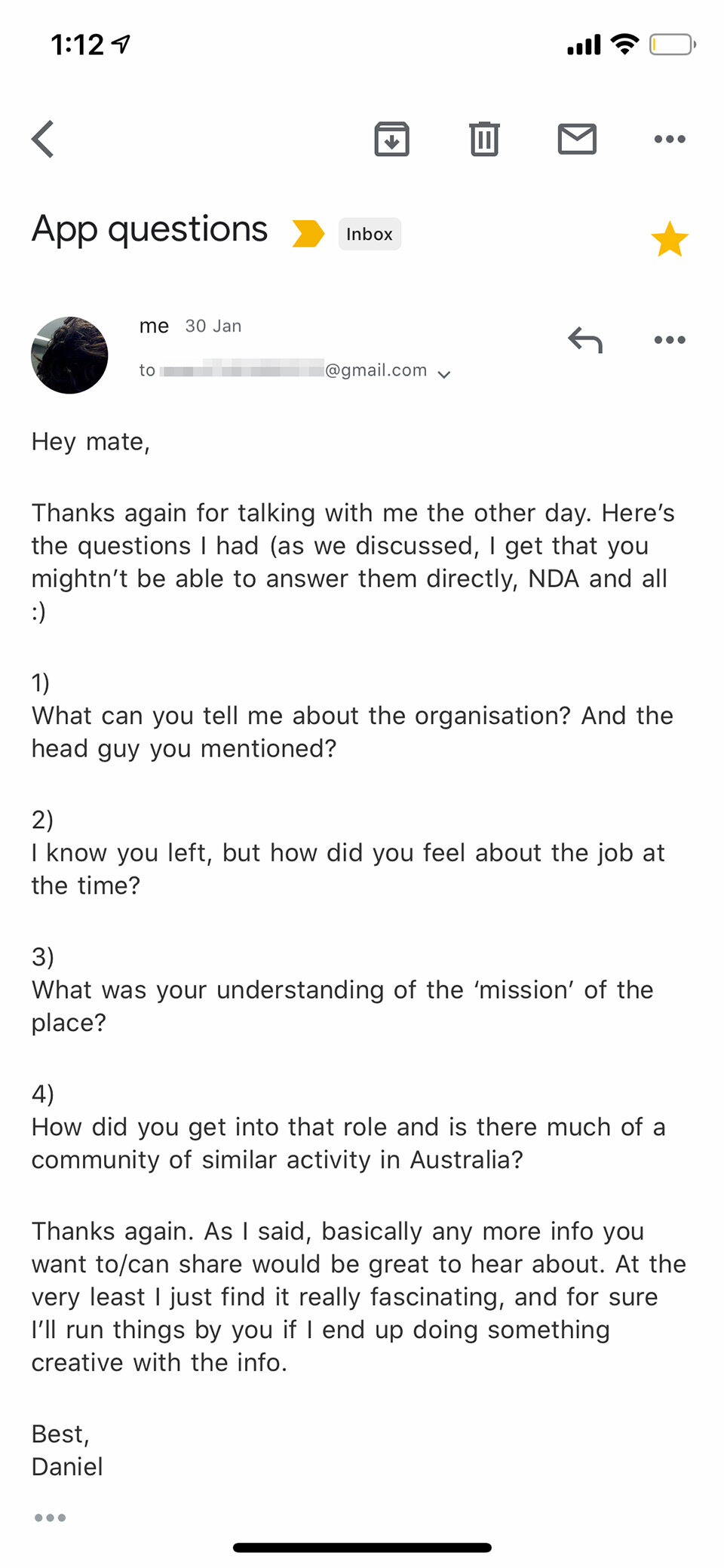


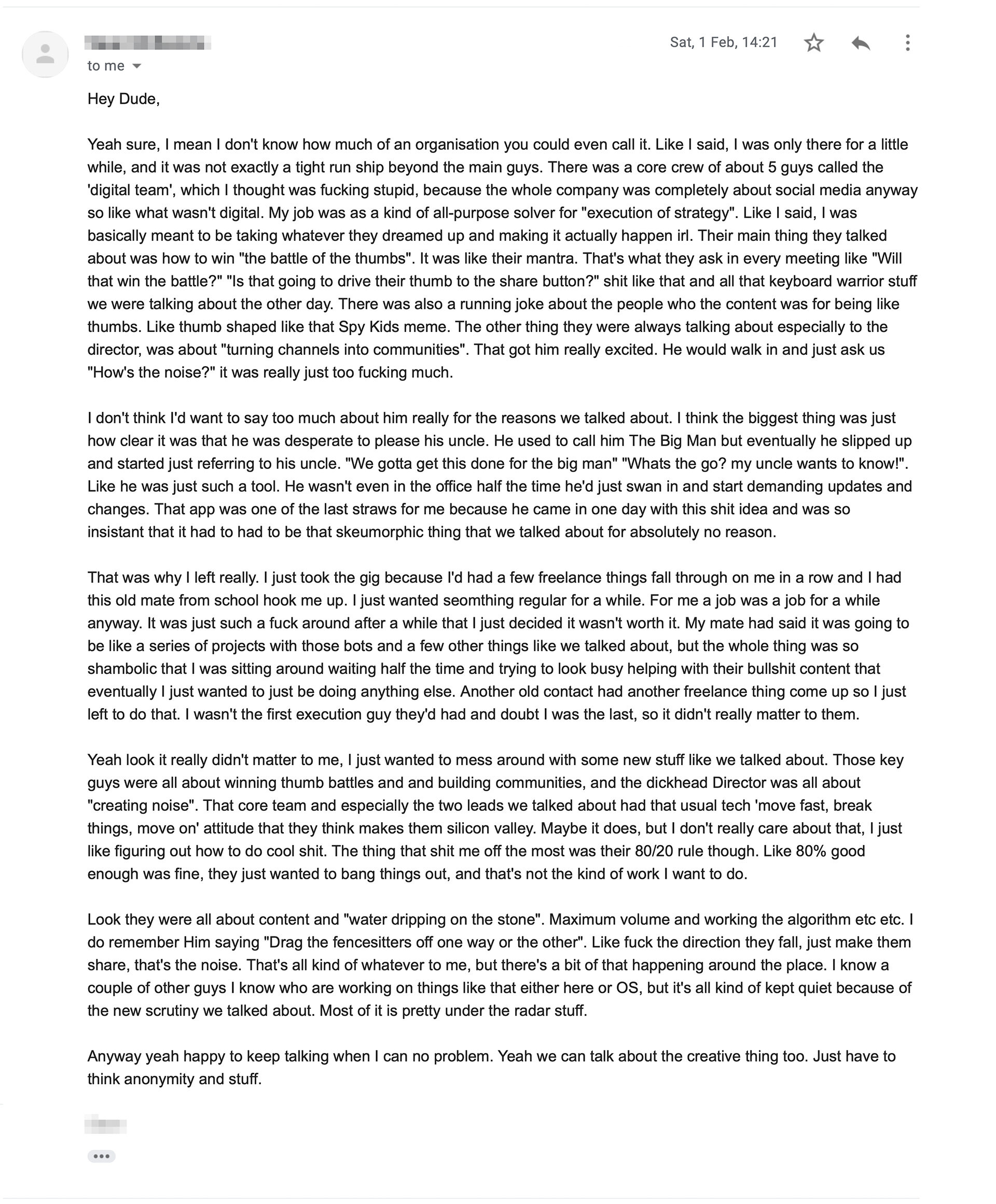
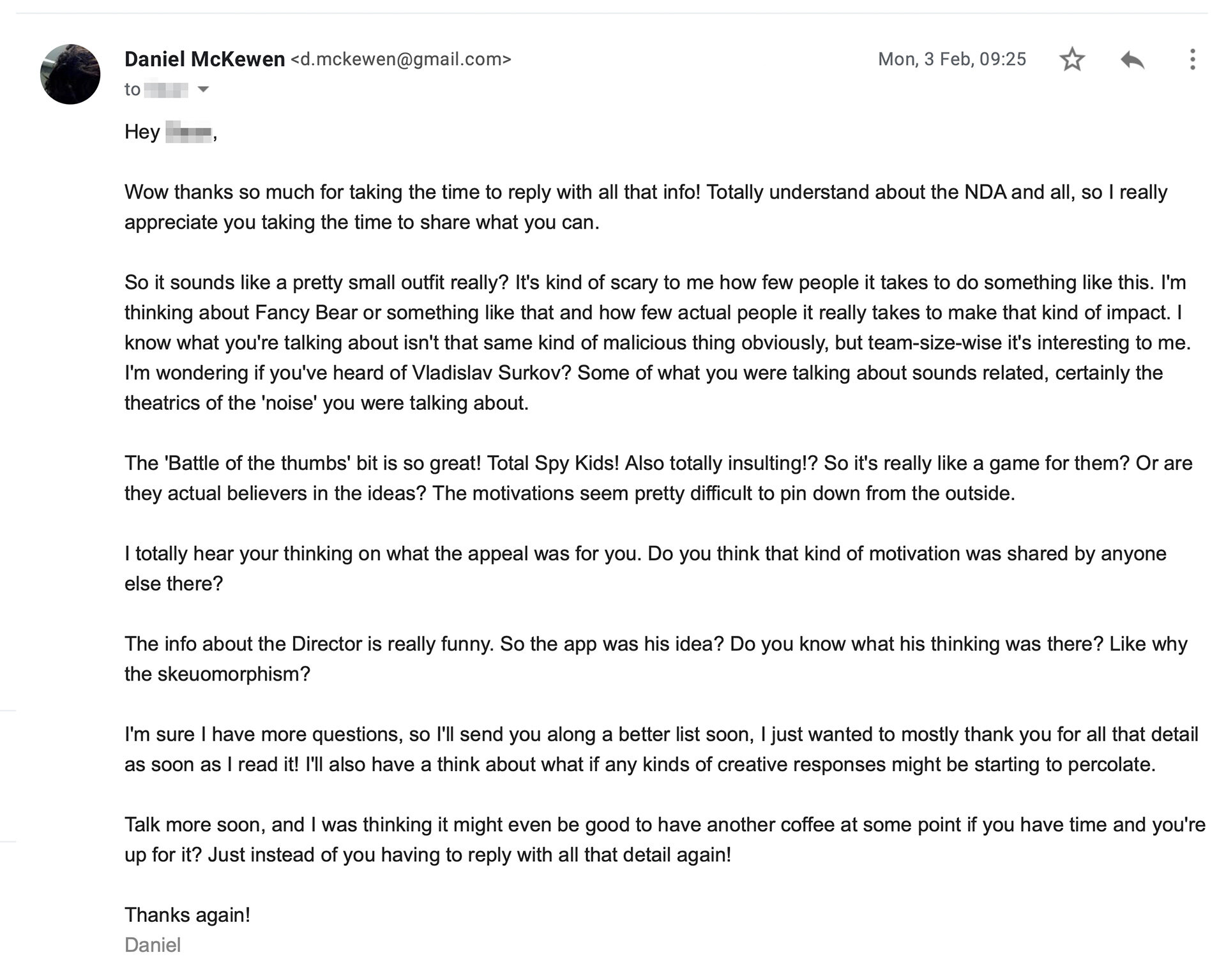
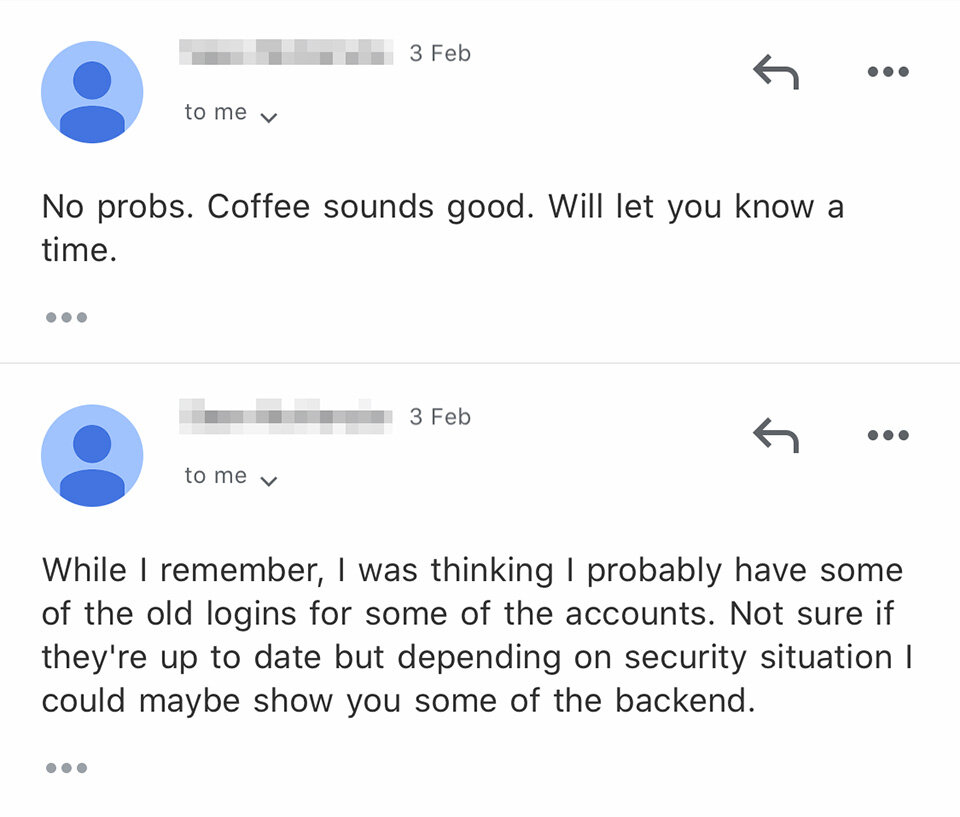
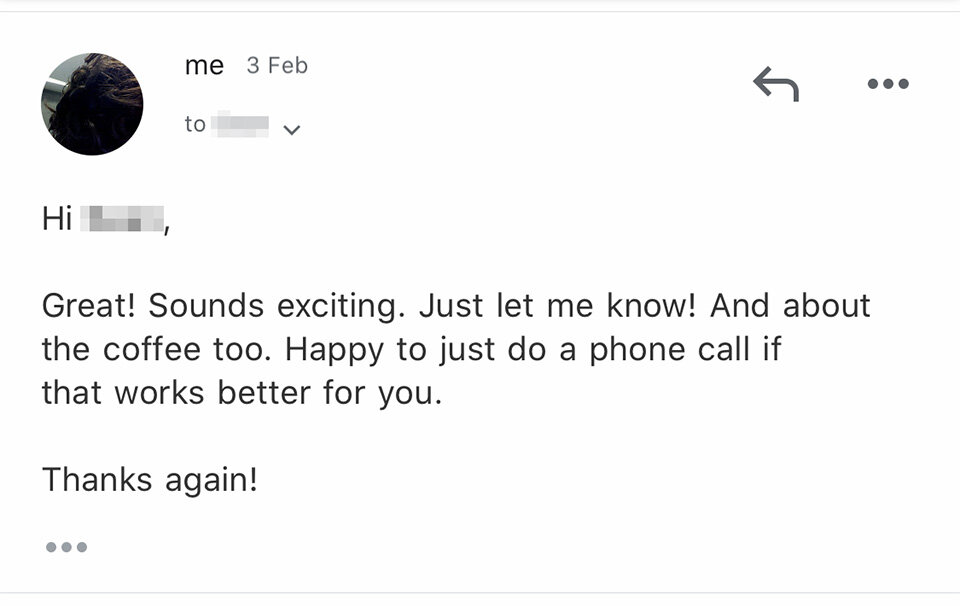
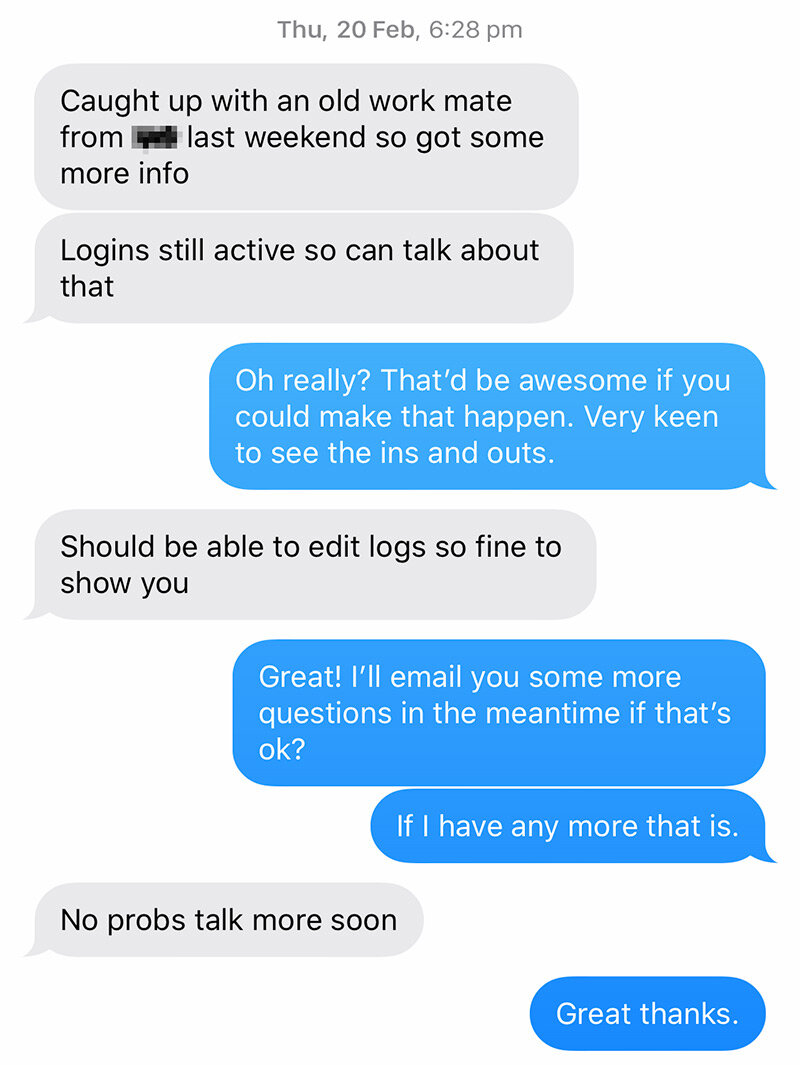
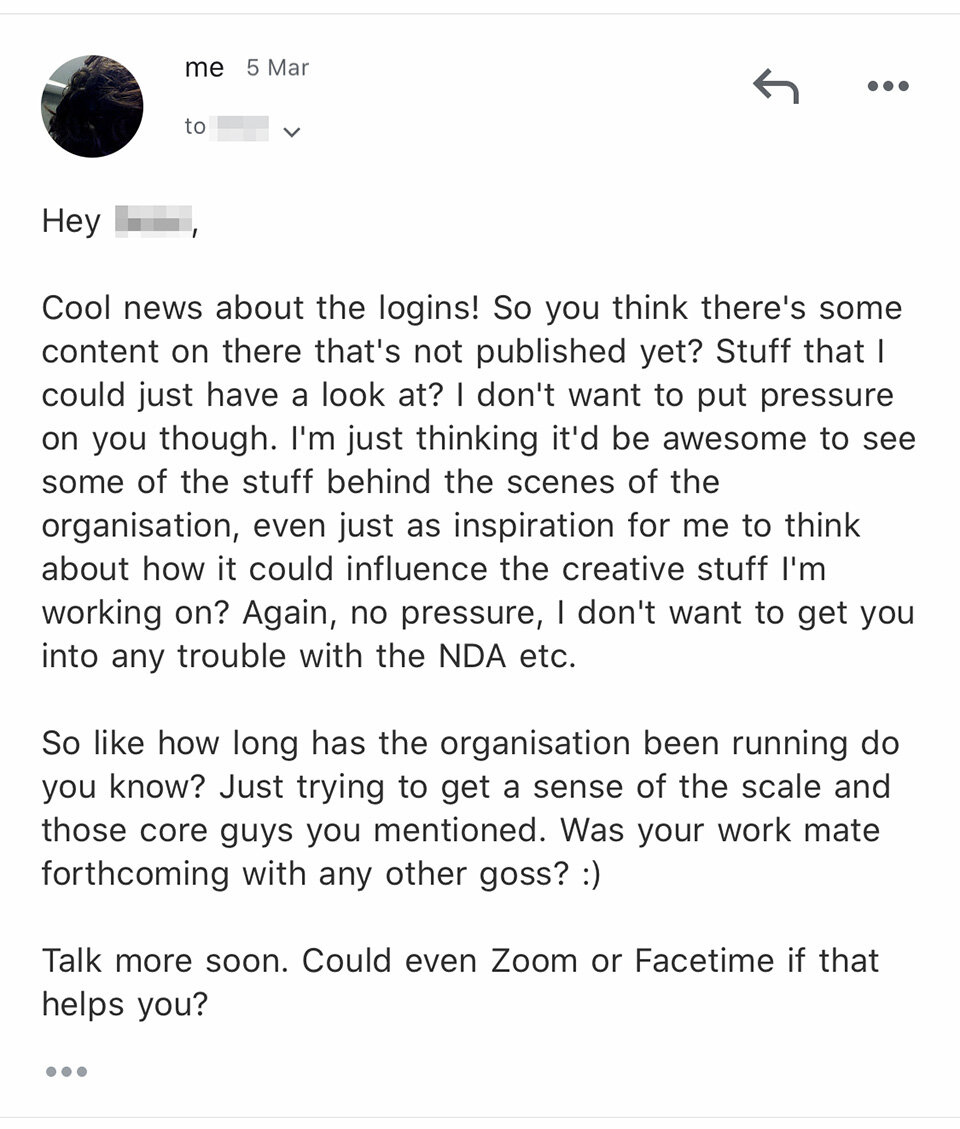
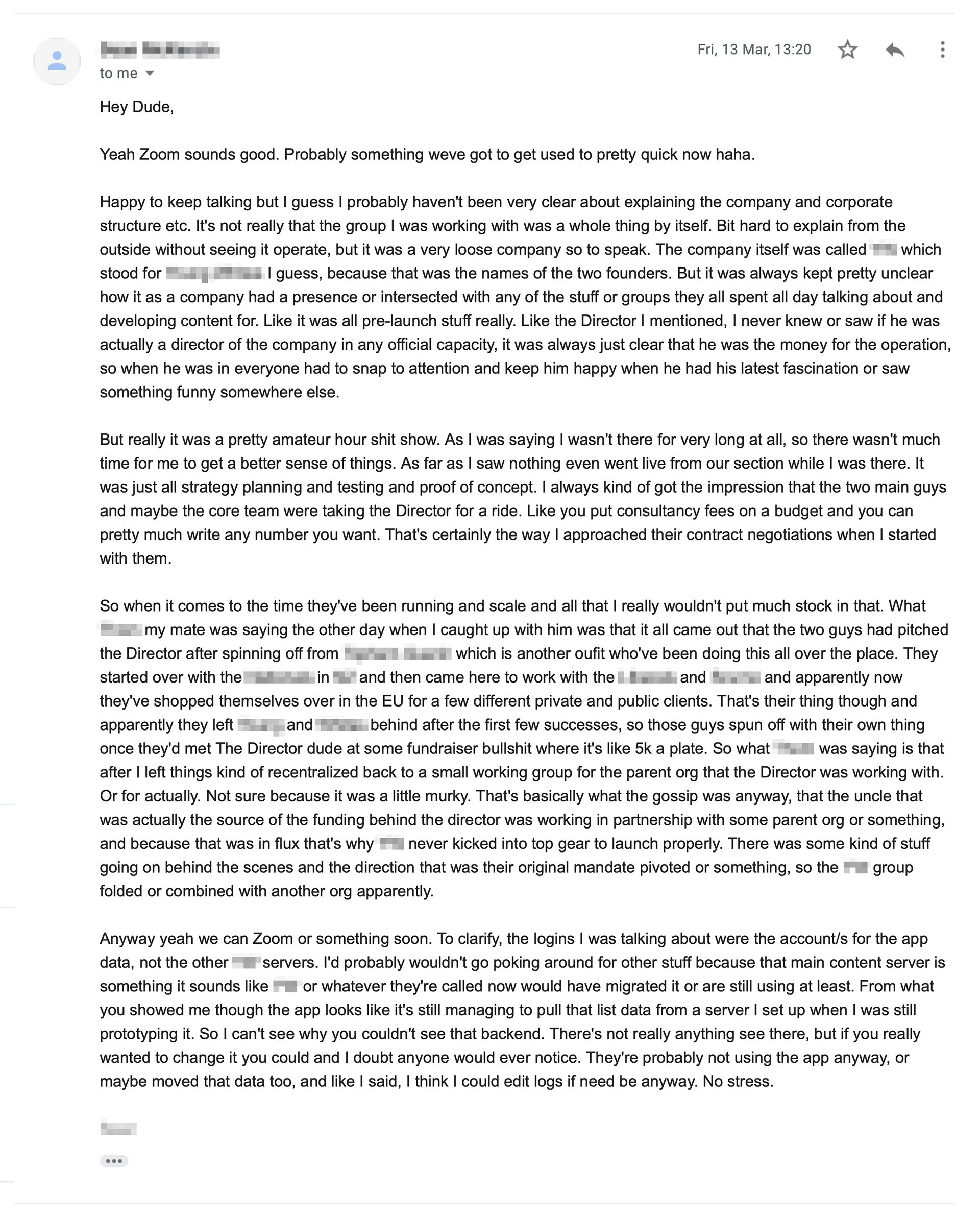
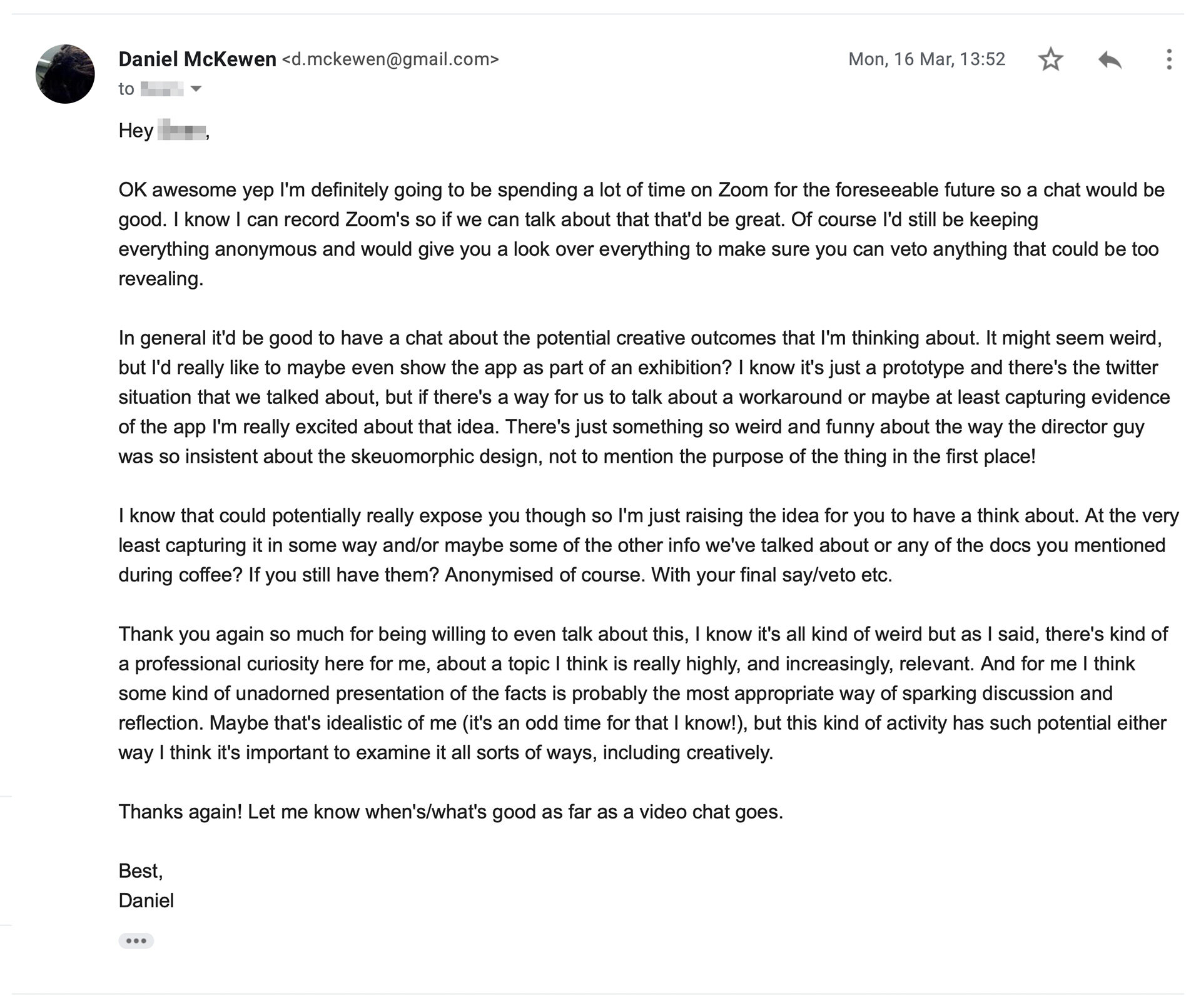
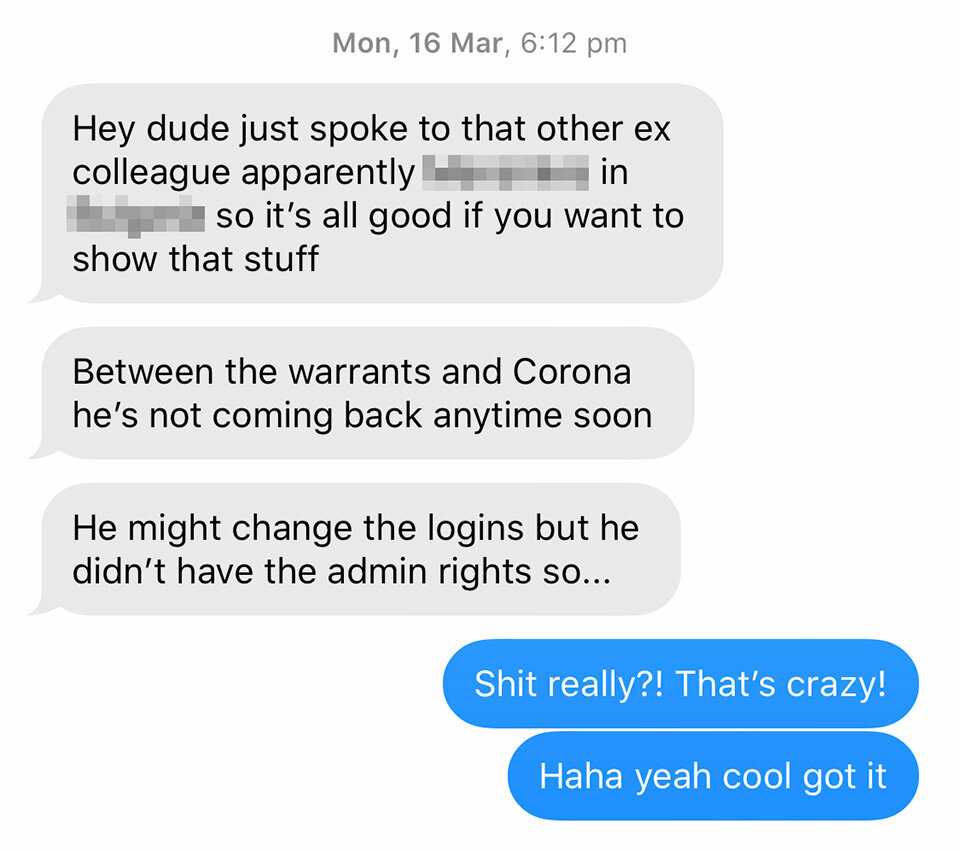
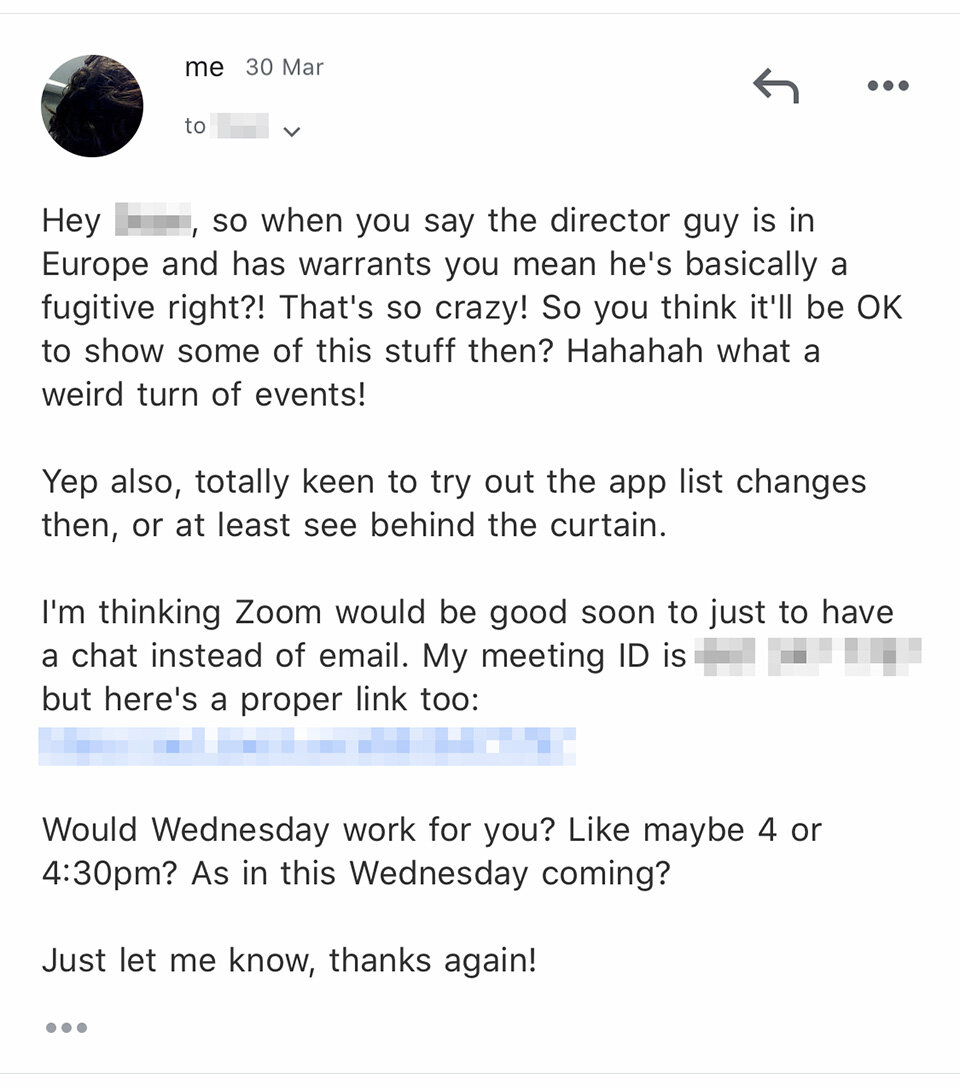

DANIEL MCKEWEN
(in collaboration with anonymous)
The 'ideo-log' Project
2020
Found iPhone, assorted videos, digital and printed images.
Dimensions and duration variable.
Courtesy of the artist and Milani Gallery, Brisbane.
In The ‘ideo-log’ Project, artist Daniel McKewen presents an autobiographical exchange with an anonymous corporate informant from a defunct political consultancy firm. After finding a mysterious app installed on a second-hand iPhone purchased on Gumtree, McKewen’s screen-captures detail various exchanges with the app’s designer to reveal the beginnings of a conspiratorial journey of discovery.
The work unfolds across text messages, emails, and Zoom conversations, where references are made by the consultant to two politically opposed think tank organisations: The Group Institute and The Institute Group. The ‘ideo-log’ app itself seems to be the beta version of an insidious corporate experiment. The scrolling motion of the interface recalls casino-style ‘pokie’ machines, and the two-part insults it generates draw from the political arena, ready to spin through the 24hr-news-cycle and into social media echo chambers. The app appears created to enable a verbal sparring match between the two think tanks that is both gamified and automated, trading insults such as ‘Boomer Liberals’, ‘Goat Cheese Commentators’, ‘Republican Vaxxers’ and ‘Muesli Sceptics’. Upon closer inspection of the evidence and testimony, deeper political machinations are hinted at as other technological residue reveals an aborted dis-information project geared towards ‘making noise’, polarising and inflaming opinions, and tearing at the social fabric in a ‘battle of the thumbs’.
The ‘ideo-log’ Project considers how all manner of digital interfaces can affect real-world global politics. Recent historical events, such as the manipulation of the 2016 Presidential Campaign in the US and the Brexit Referendum in the UK are indicative of this post-truth climate, where perceptions and political opinions are manufactured and disseminated through networked devices, social media and organised propaganda apparatus such as digital soldiers and bot armies.
This project has been assisted by the Australian Government through the Australia Council, its arts funding and advisory body.

ARTIST BIO
Daniel McKewen’s work explores the intersections between popular culture, economics, politics and social media platforms. Often employing film, digital video and found objects, he examines institutional power structures embedded within these forms, while acknowledging his own complicity as witness and consumer. Daniel lives and works in Meanjin (Brisbane, Australia), where he is also a Lecturer in Visual Arts, in the School of Creative Practice at the Queensland University of Technology. His work can be found here, is held in public and private collections and is represented by Milani Gallery, Brisbane.
Recent solo exhibitions include Promissory Estoppel, IMA Belltower, Judith Wright Centre of Contemporary Arts, Brisbane, Australia (2019–2020); Paper Empire, Bus Projects, Melbourne, Australia (2018); Strange Loops, Firstdraft Gallery, Sydney, Australia (2016); and Distance, IMA at Ksubi, Institute of Modern Art, Brisbane, Australia (2012). Select group exhibitions include Creative Accounting, a national touring exhibition with Museums & Galleries NSW to Moree Plains Gallery (2017), Museum of the Riverina, Wagga Wagga (2017), Western Plains Cultural Centre, Dubbo (2017), The University of Queensland Art Museum, Brisbane (2016–2017), Albury Library Museum (2016), Manningham Art Gallery, Doncaster (2016), and Hawkesbury Regional Gallery, Windsor (2016); Neo-Normal, John Fries Award, University of New South Wales Gallery, Sydney, Australia (2016); Big Cheese, Dark MOFO, Contemporary Art Tasmania, Hobart, Australia (2016); Text, Queensland University of Technology (QUT) Art Museum, Brisbane, Australia (2015); The Churchie National Emerging Art Prize, Griffith University Art Gallery, Brisbane, Australia (2015); You Imagine What You Desire, 19th Biennale of Sydney, Australia (2014); and The Vernacular Terrain, Songzhuang Art Museum, Beijing, China (2007).